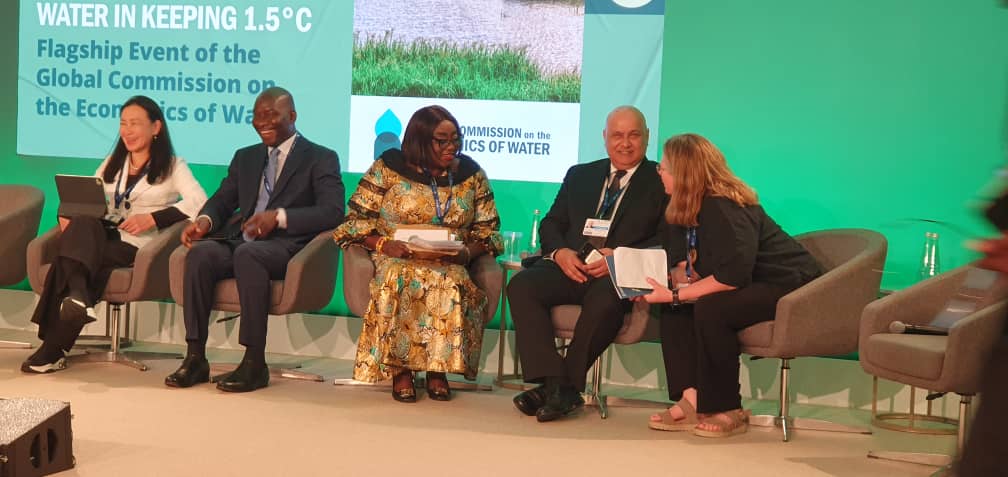By Dennis Peprah,
Sunyani, Dec. 11, GNA – Ghana and Cote D’Ivoire are collaborating to build common modalities in the management and judicious use of water resources, Dr Freda Prempeh, the Minister of Sanitation and Water Resources (MSWR) has said.
She said the United States Agency for International Development (USAID) was supporting the collaboration for the two countries to well manage, sustain and preserve the Tano River, which traversed both countries.
“This is being done with considerable emphasis on bottom-up approaches where local communities’ inputs, aspirations and goals are synthesis into the broader strategy,” Dr Prempeh stated during the 28th Conference of Parties (COP28) in Dubai.
A statement issued by the MSWR and copied to the Ghana News Agency (GNA), said “there is a consensus that a radical increase in water and sanitation investments is required to meet the Sustainable Development Goal Six.
The United Nations global goal six pushes countries around the world to ensure availability and sustainable management of water and sanitation for all by 2030.
The Organisation for the Development of the Senegal River (Organisation -OMVS) provides a template of how to pool together and work collaboratively in ensuring water protection, its optimal usage and yielding mutually rewarding outcomes for all actors.
The OMVS is a strategy for the management of River Senegal which stretches more than 1,800 kilometers across Guinea, Mali, Senegal and Mauritania, the statement cited.

In a region such as the Sahel, which is plagued by drought, poverty, and underdevelopment, access to a water resource such as the Senegal River is critical to local populations who rely on it for energy production, land irrigation, and potable water.
These countries, it explained, had also come together to manage water resources in a way the statement described as a ‘confluence of diplomacy in response to climate pressures’, saying with the World Bank providing the platform, the countries had agreed on common modalities in the use and control of water resources.
“When we take a holistic look at the lessons from the Senegal case and the Ghana-Ivory Coast progress, then there is the need for the ‘Diplomatic Platform Enabler’ to help in providing the opportunity for dialogue, especially in territories with strained diplomatic relations, the statement said.
In this regard, global bodies such as the World Bank and regional bodies such as African Union/ECOWAS are critical to provide a clear checklist of roles, responsibilities, entitlements and expectations.
It indicated that these should be discussed prior to any key commitments, with opportunities for periodic review and clear dispute resolution mechanisms. The statement also stressed the need for a concerted effort by multilateral agencies to radically prioritise investment in the water sector, especially for interventions which were targeted at the most vulnerable.
Indeed, the SDGs 17 talks about building global partnerships for achieving the SDGs and it is important that, considering the crosscutting nature of the subject of water, multilateral and even bilateral agencies will continue to ringfence support for investment in the protection and provision of safe water for the many uses.
“Although multilateral and bilateral investments are driven by foreign policy priorities, it is safe to argue that the importance of water means the water agenda should be crosscutting”, the statement indicated.
There is therefore the need for a global commitment for such bodies to invest a minimum amount into the water agenda through aid and concessional financing, it said.
“Multilateral bodies can further help to stimulate countries to drive up investment in pursuit of the water agenda through the concept of counterpart funding and matching grants,” the statement said.
With these as tools, multilateral agencies would provide more support for water related interventions, provided the beneficiary countries would demonstrate good commitment and investment into improving access to quality water for all.
GNA